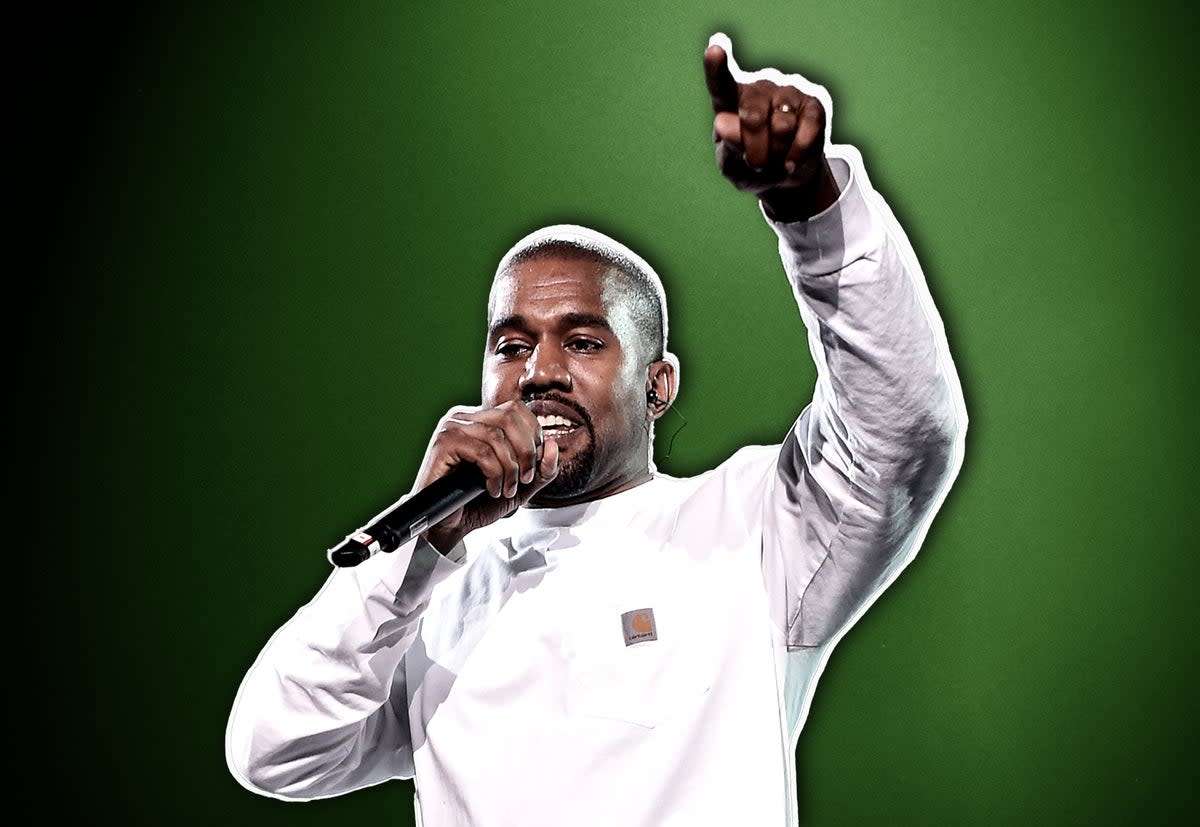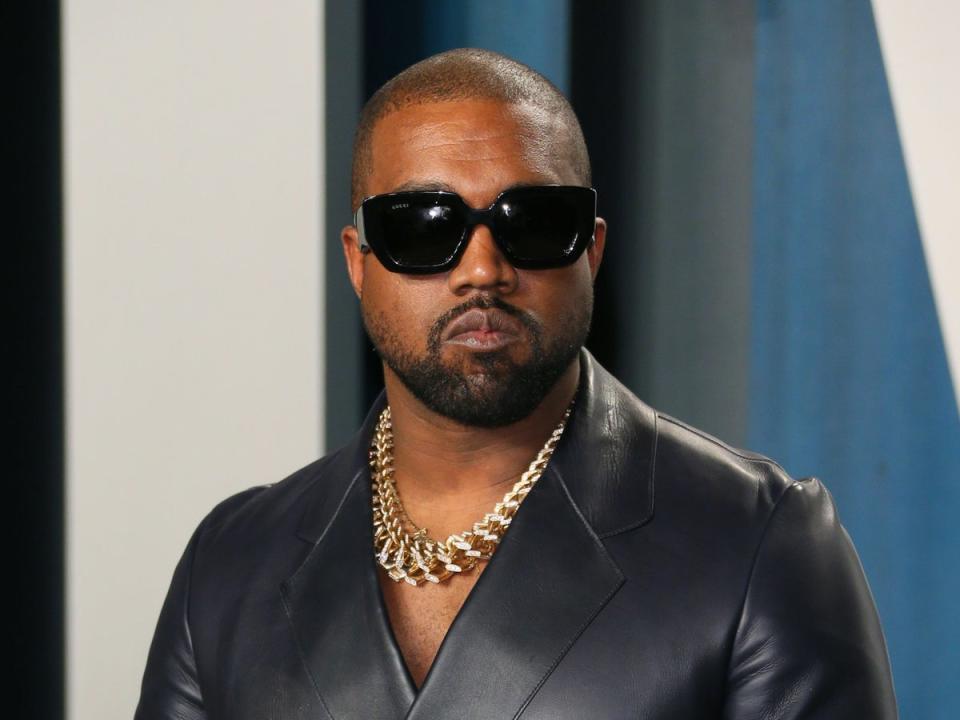Kanye West’s weak efforts on Vultures won’t help him recover from the past few years

Much has been made of Kanye West’s “cancellation” in recent years, as the controversial rapper continues to spark one backlash after another. Between his antisemitic outbursts – claiming he was going “deathcon3 on Jewish people” and declaring that he “liked” Hitler – or his misogynist lyrics about Taylor Swift, there have been several occasions that have, supposedly, been enough to cause the music industry (and the rest of the world) to turn their backs on this fallen genius.
But cancelled West is not. Yes, his antics have left him without a major record deal. Yes, they’ve resulted in his billionaire status being wiped due to a severed Adidas deal. And perhaps yes, there may even be a modicum of truth in his since-deleted claims that he can’t book a tour because he’s been blacklisted by music venues. But how can West be cancelled when he’s still attracting some of rap’s biggest names, from Travis Scott to Playboi Carti, to collaborate with him on his latest album, Vultures? How can someone who still generates millions of streams per song in a matter of days and boasts 66 million monthly listeners on Spotify be quote-unquote cancelled?
That critics still believe West’s work is worth any attention at all is testament to his earlier track record of excellence, whether on his third album, 2011’s Graduation, or on his debut College Dropout, which marked its 20th anniversary just a few days ago.
In a retrospective for The Independent, music writer Nadine White mourned the “kid with a daydream” West once was: a hustler whose creative vision set him apart from his peers. “For all the braggadocious gymnastics and attention-seeking, Kanye readily presented himself as an imperfect protagonist, frenetically mediating between his id and his superego,” White wrote.
“The early Kanye could drop knowledge on a level on par with the most perceptive ‘conscious’ rappers, like Common and Talib Kweli, who appear on the raucous stoner anthem ‘Get ’Em High’, but instead of scolding from on high, he generally indicted himself along with the system – a sinner seeking forgiveness rather than the outright preacher he would later become.”
Indeed, those who reviewed Vultures found little merit in his new songs. Writing forThe Guardian, Alexis Petridis was contemptuous of West’s “hopelessly weak” verses on “Hoodrat”, and the generally sub-par standard of his lyrics when compared to guest rapper Freddie Gibbs.

West’s work as a producer, too, no longer seems to inspire the rave reviews he received on early records such as Late Registration. Indeed, none of his albums have been feted with that kind of unanimous acclaim since his 2010 opus, My Beautiful Dark Twisted Fantasy. The Times’ critic Will Hodgkinson complained that West, once one of the most innovative producers around, now resorts to “the same old Auto-Tune, tinny, processed beats and overweening grandiosity without much in the way of charm or humour, musically or lyrically”.
It’s true: Vultures is far from great. It’s not as bad as Donda, mind you, West’s 2021 album that stumbled between everything from trap to drill, gospel to boom-bap, while wrestling with his (ultimately performative) new religious mission statement. Nor is it worse than 2019’s Jesus is King, the gospel record that failed to gather his views on faith in any meaningful, cohesive way. Vultures at least has a few decent hooks – namely on the summery “Burn” in which he hits out at being burnt by those who “cashed a check” off his name, and on “Do It”, which samples the synth-strings on Juvenile’s “Back That Azz Up”.

West’s recent efforts have generated buzz less for their quality than their lyrical content. On 2016’s The Life of Pablo, it was his misogynist outburst against Taylor Swift on lead single “Famous” that provoked a storm of publicity around their reignited feud. His latest projects have also suffered from frequent delays; the Vultures release date was pushed back at least three times before it finally dropped on Sunday 11 February. And when his records eventually do drop, the reaction feels even more deflated.
In White’s retrospective on The College Dropout, she cited rapper GLC who once said to Complex: “Whenever you heard a new Kanye record, it came from frustration because no one was paying him attention. That’s why it was so good.”
Now, West seems less inclined to put in the work, apparently under the impression that cheap shots at his enemies and quickfire, chaotic stunts will generate the attention he craves far quicker. But, as Petredis noted in his two-star review, Vultures unequivocally lacks the kind of world-dominating, money-spinning hit that might just tempt the music industry to welcome him back into the fold. Surely, anyone can see West is more trouble than he’s worth.


